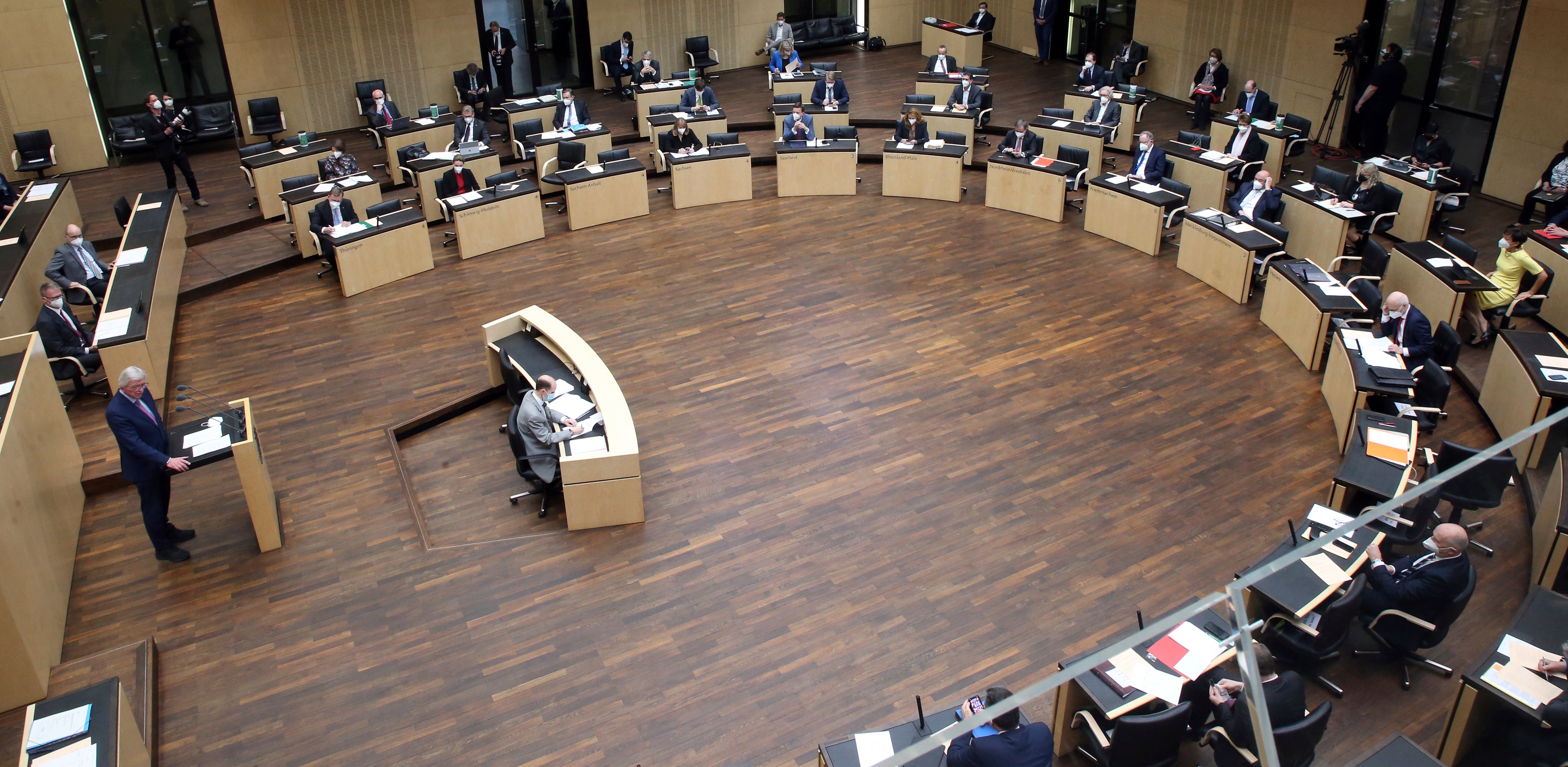German 'emergency brake' plan clears last legislative hurdle
A plan by German Chancellor Angela Merkel’s government to mandate uniform restrictions in areas where the coronavirus is spreading too quickly has cleared its final legislative hurdle

Your support helps us to tell the story
From reproductive rights to climate change to Big Tech, The Independent is on the ground when the story is developing. Whether it's investigating the financials of Elon Musk's pro-Trump PAC or producing our latest documentary, 'The A Word', which shines a light on the American women fighting for reproductive rights, we know how important it is to parse out the facts from the messaging.
At such a critical moment in US history, we need reporters on the ground. Your donation allows us to keep sending journalists to speak to both sides of the story.
The Independent is trusted by Americans across the entire political spectrum. And unlike many other quality news outlets, we choose not to lock Americans out of our reporting and analysis with paywalls. We believe quality journalism should be available to everyone, paid for by those who can afford it.
Your support makes all the difference.A plan by German Chancellor Angela Merkel s government to mandate uniform restrictions in areas where the coronavirus is spreading too quickly cleared its final legislative hurdle on Thursday as it was passed by parliament's upper house.
The upper house, where Germany's 16 state governments are represented, could have held up the plan by seeking renegotiations but let it pass. It now goes to President Frank-Walter Steinmeier to be signed.
The legislation to apply an “emergency brake” consistently in areas with high infection rates is intended to end the patchwork of measures that has often characterized the pandemic response across highly decentralized Germany’s 16 states. The measures include closures and a 10 p.m.-5 a.m. curfew, the most controversial element.
The bill was approved by parliament's lower house on Wednesday. It will apply until the end of June.
“Summer is not so far away, and ... making the decisive difference with vaccination,” Health Minister Jens Spahn said. “But for that, we need action now to break this wave (of infections), and this bill serves that end.”
Several state governors made clear they disliked the legislation, defending their crisis management, pointing to possible constitutional difficulties and arguing that it would do little to make Germany's pandemic response more consistent.
But they opted against seeking renegotiations, which some noted would delay but not prevent the bill.
The legislation calls for limiting personal contacts, closing leisure and sports facilities and shutting or restricting access to many stores.
The measures would kick in for areas where there are more than 100 weekly new cases per 100,000 residents for three consecutive days. Schools would have to switch to distance learning at a higher rate of 165.
Germany’s nationwide rate stood at 161 new cases per 100,000 residents on Thursday, though there were wide regional variations. The country's initially slow vaccination campaign has gathered pace, with 21.6% of the population now given a first dose.
“I hope with all my heart that what we are doing now is successful,” Hesse governor Volker Bouffier said in Thursday's debate. “Because one thing must be clear to us: We won't be able to manage such interventions for two months in Germany again without major rifts, particularly if they don't have the hoped-for success.”
—-
Follow AP’s pandemic coverage at:
https://apnews.com/hub/coronavirus-pandemic
https://apnews.com/UnderstandingtheOutbreak